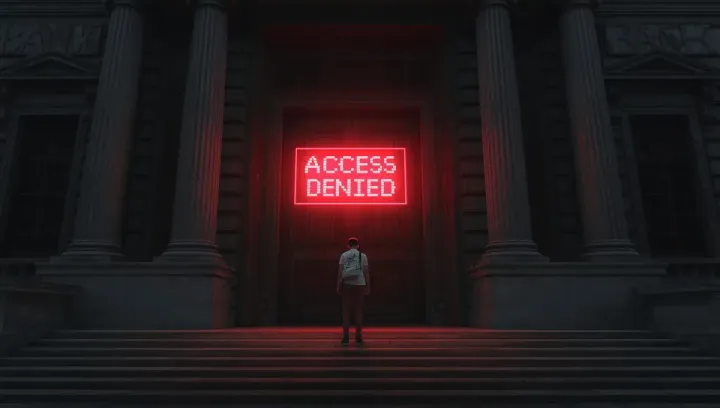
The New Financial Weapon: Are We All at Risk of Being Debanked?
There’s a quiet fear that’s been spreading in certain circles, a fear that goes beyond market crashes or inflation. It’s the fear of being “debanked” – of having your access to the financial system severed, not for any crime, but for your political views, your business, or even your associations.
This isn’t a theoretical problem anymore. We just saw a US presidential executive order aimed at prohibiting this very practice, which tells you how mainstream the issue has become. What was once a tool reserved for money launderers and terrorist financiers is now being wielded in the political arena.
From Financial Crime to Thoughtcrime
The premise of debanking is simple: a bank, as a private institution, can choose who it does business with. On the surface, that sounds like a fundamental right of commerce. But banks aren’t just any business. They are the gatekeepers to modern life. Without a bank account, you can’t easily receive a salary, pay your bills, get a loan, or run a business. You are, for all practical purposes, an economic outcast.
Initially, this power was used under government pressure to cut off funds for illicit activities. No one shed a tear for criminals losing their accounts. But the line has blurred. Now, we see it happening to legal businesses like firearms dealers, cryptocurrency entrepreneurs, and even independent journalists who challenge mainstream narratives.
The Chilling Effect of Corporate Power
When financial institutions start making decisions based on political pressure or vague “reputational risk” policies, they become de facto arbiters of acceptable speech and thought. It creates a powerful chilling effect. Would you publicly support an unpopular cause if you knew it could cost you your mortgage? Would you start a controversial business if you couldn’t get a payment processor?
This is a level of social control that is far more insidious than direct government censorship. It’s outsourced to corporations, who can operate without the constraints of due process or free speech protections. There’s no trial, no judge, no jury – just a notification that your account has been closed, effective immediately.
Are We Building a Social Credit System by Proxy?
The danger is that we are stumbling into a Western-style social credit system, not by government decree, but through a public-private partnership of convenience. Activist groups pressure banks, banks create risk policies, and individuals who fall outside a narrow band of acceptable opinion are systematically cut off.
The recent executive order is a reaction to this trend, but can it truly solve the problem? The line between a legitimate financial risk and a political decision is incredibly thin and easy to manipulate.
I don’t have an easy answer, but it’s a conversation we need to have. Our financial access is fragile, and the tools of control are becoming more sophisticated. We must decide if we want our banks to be neutral utilities or moral guardians, because we can’t have it both ways.


